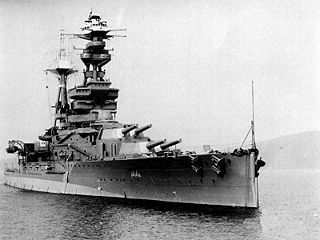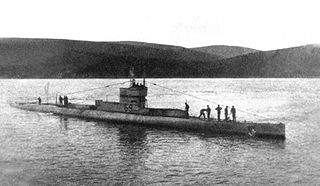Contents
| |||||
| Centuries: | |||||
|---|---|---|---|---|---|
| Decades: | |||||
| See also: | List of years in Scotland Timeline of Scottish history 1914 in: The UK • Wales • Elsewhere Scottish football: 1913–14 • 1914–15 | ||||
Events from the year 1914 in Scotland .
| |||||
| Centuries: | |||||
|---|---|---|---|---|---|
| Decades: | |||||
| See also: | List of years in Scotland Timeline of Scottish history 1914 in: The UK • Wales • Elsewhere Scottish football: 1913–14 • 1914–15 | ||||
Events from the year 1914 in Scotland .

HMS Hampshire was one of six Devonshire-class armoured cruisers built for the Royal Navy in the first decade of the 20th century. She was assigned to the 1st Cruiser Squadron of the Channel Fleet upon completion. After a refit, she was assigned to the reserve Third Fleet in 1909 before going to the Mediterranean Fleet in 1911. She was transferred to the China Station in 1912 and remained there until the start of the First World War in August 1914.

Scapa Flow is a body of water in the Orkney Islands, Scotland, sheltered by the islands of Mainland, Graemsay, Burray, South Ronaldsay and Hoy. Its sheltered waters have played an important role in travel, trade and conflict throughout the centuries. Vikings anchored their longships in Scapa Flow more than a thousand years ago. It was the United Kingdom's chief naval base during the First and Second World wars, but the facility was closed in 1956.

HMS Royal Oak was one of five Revenge-class battleships built for the Royal Navy during the First World War. Completed in 1916, the ship first saw combat at the Battle of Jutland as part of the Grand Fleet. In peacetime, she served in the Atlantic, Home and Mediterranean fleets, more than once coming under accidental attack. Royal Oak drew worldwide attention in 1928 when her senior officers were controversially court-martialled, an event that brought considerable embarrassment to what was then the world's largest navy. Attempts to modernise Royal Oak throughout her 25-year career could not fix her fundamental lack of speed and, by the start of the Second World War, she was no longer suitable for front-line duty.

The Grand Fleet was the main battlefleet of the Royal Navy during the First World War. It was established in August 1914 and disbanded in April 1919. Its main base was Scapa Flow in the Orkney Islands.

The Home Fleet was a fleet of the Royal Navy that operated from the United Kingdom's territorial waters from 1902 with intervals until 1967. In 1967, it was merged with the Mediterranean Fleet creating the new Western Fleet.

HMS G9 was a G-class submarine, one of eight Royal Navy submarines known to have been lost to friendly fire in World War I.

HMS Opal was an Admiralty M-class destroyer of the Royal Navy. She served in the First World War following her construction at Sunderland in 1915. Attached to the 12th Destroyer Flotilla based with the Grand Fleet at Scapa Flow, Opal had an eventful short life, which ended in shipwreck after two and a half years of service.
Events from the year 1915 in the United Kingdom. The year was dominated by the First World War, which broke out in the August of the previous year.
Events from the year 1918 in the United Kingdom. This year sees the end of the First World War after four years, which Britain and its allies won, and a major advance in women's suffrage.
Events from the year 1914 in the United Kingdom. This year saw the start of the First World War, ending the Edwardian era.

The Action of 22 September 1914 was an attack by the German U-boat U-9 that took place during the First World War. Three obsolete Royal Navy cruisers of the 7th Cruiser Squadron manned mainly by Royal Naval Reserve part-timers and sometimes referred to as the Live Bait Squadron, were sunk by U-9 while patrolling the southern North Sea.
HMS Owl was an Acasta-class destroyer of the Royal Navy, launched in 1913. The destroyer was part of the Grand Fleet during the First World War and took part in the Battle of Jutland. Owl survived the war and was sold for scrap in 1921.

The Atlantic U-boat campaign of World War I was the prolonged naval conflict between German submarines and the Allied navies in Atlantic waters—the seas around the British Isles, the North Sea and the coast of France.
Events from the year 1939 in Scotland.
Events from the year 1918 in Scotland.
Events from the year 1917 in Scotland.
Events from the year 1915 in Scotland.

The second HMS Wivern, was a Modified W-class destroyer of the British Royal Navy that saw service in World War II.
HMS Gentian was an Arabis-class sloop that was sent to assist the Baltic States and their fight for independence. While clearing mines on 15 or 16 July 1919, according to different sources, Gentian and the sloop HMS Myrtle both hit mines and sank with the loss of nine sailors.
{{cite web}}: CS1 maint: unfit URL (link){{cite web}}: CS1 maint: unfit URL (link)